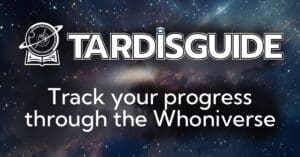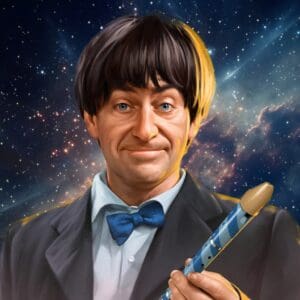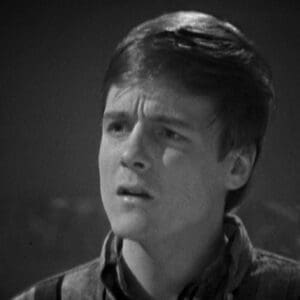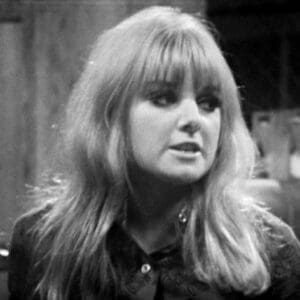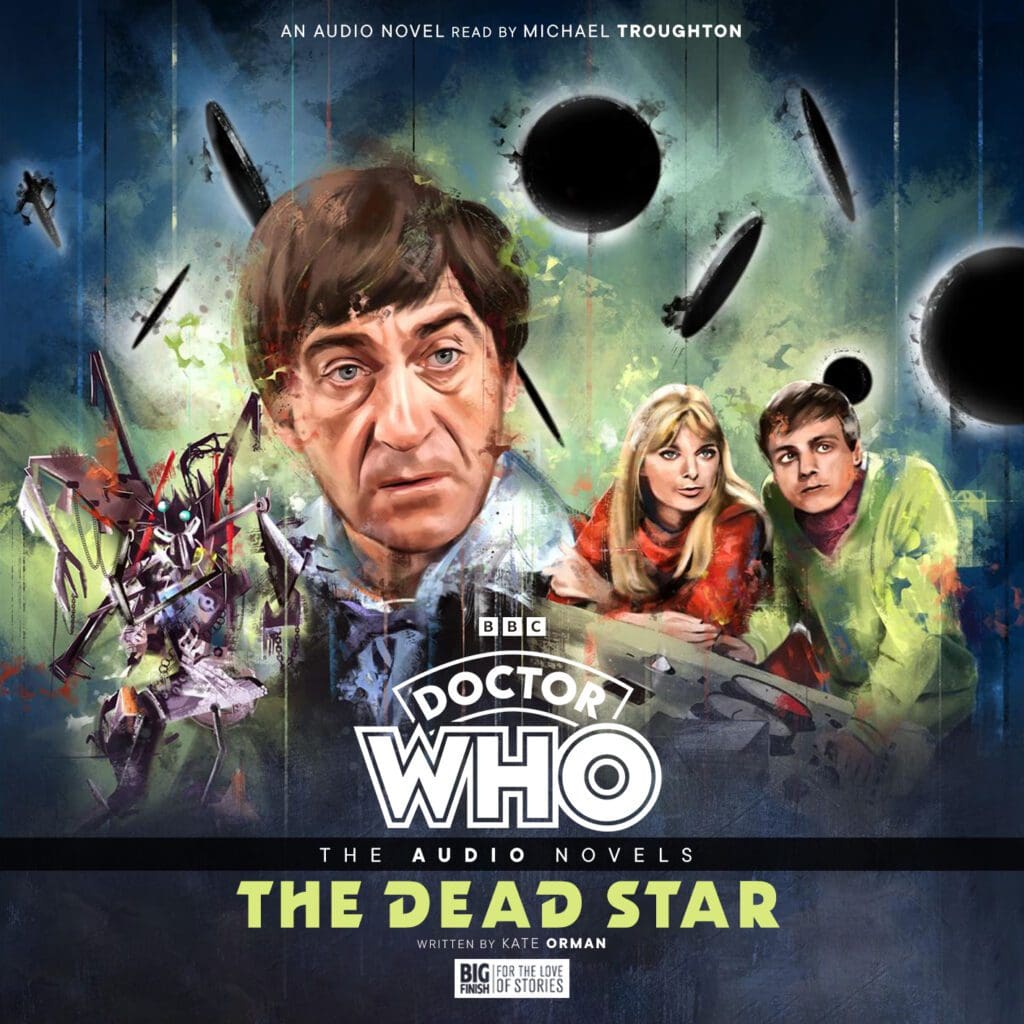
The Audio Novels
The Dead Star
Sets:
The Audio Novels
Reviews and links from the Community
This review contains spoilers
Review of The Dead Star by Joniejoon
A story that feels very unique, but might try a little too much to be perfect.
Our Tardis team is travelling through the time vortex, when something suddenly goes wrong. They get sucked into a time corridor, which brings them to a malformed, crumpled up version of London, 1968. Escaping not-quite-London is only the first step on their journey, however. To save the Earth, they will have to find out where the time corridor came from and, more importantly, how they can stop it.
Let’s talk about the most impressive thing in this story first: Scale. This story feels absolutely massive. It will take you to weird dimensions, the past and the future. All while still feeling interconnected and cohesive. One moment you will look at the river Thames floating overhead. The next you will spend some time with Polly as she becomes an undercover secretary. It keeps you on your toes, while never letting you get lost. Fantastic stuff.
However, the story also gets a bit frail is you start to look at the details. There is a lot of scientific explanations. Mostly about black holes. And while it is bearable for the most part, it does get a bit too convoluted in the last third.
On a basic level, it is pretty easy to follow. A black hole was sent through a time corridor, causing it to destroy earth. The Doctor has to either plug or prevent the corridor, so the earth doesn’t get destroyed.
However, once we meet a little starfish containing mysterious insides that uses black holes as a defense mechanism, the logic kind of flies out the window for me. It is still navigable, but it doesn’t hold your hand as much as it probably should. The last part of the story consequently loses a bit of the magic that was in place before.
The same happens in the character department. When the story moves into its last part, they lose their shine a bit. Our main villain, as far as there is one, is a scientific club that tries to hide major discoveries from the rest of society. Why do they do this? No idea! They feel like it! It’s an odd motivation, but instead of clarifying their stance, this oddly motivated club just turns into space mercenaries later. Losing the little motivation they had at their core to become generic villains.
On the friendly side we have Professor Scapinelli, who is a genderfluid Uranian with a love for science. In the first half of the story, she serves as a bit of a mystery. The weird club member that no one can get a grip on. In the second half, when we’re in the future. We see a little bit of her origins, but not enough to get a full sense of her motivations. Which is a shame, as those motivations become a linchpin in the conclusion.
Both of these examples don’t get the time they’d need to fully expand into something worthwhile. They try, but there’s just too much science in the way. The last part of the story really wants to play with its sci-fi elements, which halts the expansion of other parts, like story or character motivation.
Still, even with that clear hiccup, there is a lot to love in the complete package. The quality dwindles, but it started so high up that it really isn’t as big a deal as you’d think. A lot of story beats still hit their mark and it’s a madly creative story.
Let’s look at one of my favorite parts as an example: At one point, our main cast is in a space base that gets “attacked” by tiny black holes that rain down on them. And the story treats this attack as scientifically as possible. The black holes are completely unnoticeable and absolutely devastating. A person gets hit and they are completely compromised. They immediately go blind, smell a weird smell and collapse to the ground without ever seeing anything out of place. We go through the entire base and get variations on this event for every crew member that gets hit.
It’s a bit gruesome, but so gripping because of its originality. A black hole often just feels like set dressing. A thing that hangs in space and sucks. But when they’re weaponized, they become fascinating tools of destruction. Destroying a person in a way you wouldn’t really think about. Completely warping them from the inside before they even hit the ground.
It's that kind of nuance the story really likes to play with. You feel like the writer really knows the science and wants to play with it. Which makes for some great moments!
Another source of great moments is our writing. The Doctor especially feels very natural. He is quiet and understated, while also doing everything in his power to help in his own way. Using little gadgets or pushing other characters to become better.
Ben and Polly also get a lot to work with as they are basically back in their own time for a little while. There’s nothing I would describe as a major moment, but seeing Polly reminisce about her life in a coffee shop is something I enjoyed.
All in all, I think this story is great because of its scale and experimentation. It knows what concepts it wants to play with and makes full use of them. In the process, it loses a little too much time for side characters, but the total package is still really worth experiencing. I recommend giving this a go.
Community Ratings
(Updates coming soon:)
Add the last X members who rated it here
Add number of Favs, and who they are, here
